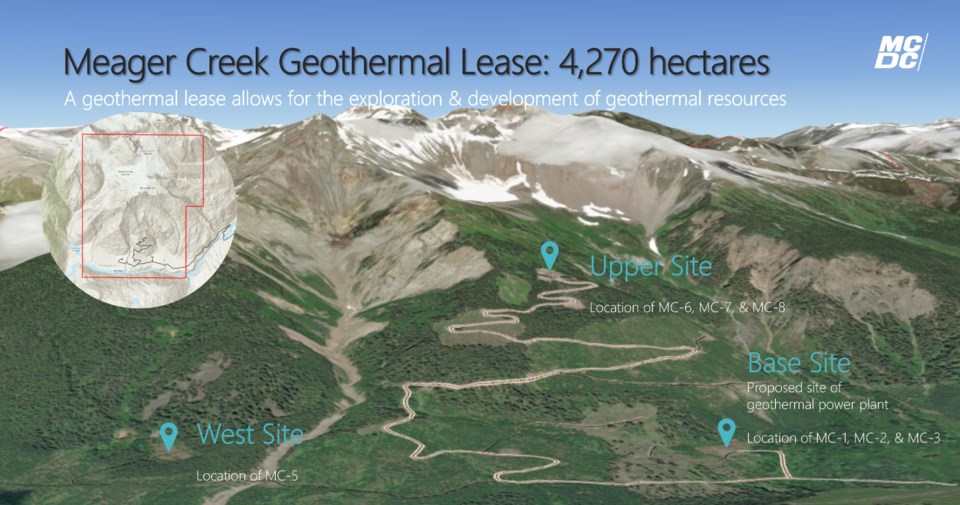Geothermal energy is getting a boost in the Sea to Sky, thanks to a recently completed assessment project by Geoscience BC, seven Canadian universities, and the Geological Survey of sa国际传媒 with support from Li虂l虛wat and S岣祑x瘫wú7mesh (Squamish) Nations.
The Garibaldi Geothermal Volcanic Belt Assessment Project at Mount Meager, near Pemberton, and Mount Cayley, southwest of Whistler, is described in a press release by Geoscience BC as “one of the most comprehensive studies of geothermal potential energy ever conducted” at the two mountains.
According to the , the research has spurred new investment for Meager Creek Development Corporation’s (MCDC) Meager Creek geothermal project. The corporation plans to use the modelling for capturing geothermal energy and transform it into green hydrogen.
The announcement marks the completion of Phase 2 of the research project. Phase 1 focused on Mount Meager, whereas Phase 2 zoomed in on Mount Cayley.
Randy Hughes, manager of energy and water for Geoscience BC, said applying six different technologies helped provide a clearer picture of geothermal energy potential.
“The objective of all these technologies is to create a subsurface image of where the best hot water reservoir is, how the fluid flows, [and that potential geothermal] drilling targets the most optimal subsurface [areas],” he said.
“So, the purpose of the research is to reduce the risk, or conversely, provide a better model to help in the development phase—where best to drill to develop the geothermal resource and the clean energy resources.”
Richard Hawker, MCDC president, said in the release Geoscience BC’s work has been instrumental.
“As we have worked to build the development plan for the MCDC project the quality of the work done by Geoscience BC continually impresses our team. Without the data and reports developed by their team we would never have gotten to the point we are,” Hawker said.
Research into geothermal potential at Mount Meager but MCDC hopes to turn potential into reality.
Geothermal energy is touted as one tool in the toolbox to get sa国际传媒 to net-zero emissions by 2050, with plans in the mix to use buses, power other industries and heat buildings, .
There are more results coming, with the project lead, Dr. Steve Grasby, generating a paper expected in 2025 with summary results from Phases 1 and 2, along with numerous research papers from various universities involved.
“There are lots of volcanoes and volcanic complexes in British Columbia. The techniques that were developed and the technologies that [were applied] at Mount Meager and at Mount Cayley can be applied elsewhere in the province,” Hughes said.
To further assess geothermal potential in the province, Geoscience BC is proposing high-level assessments of existing data to identify and explore the top sites in northwest and southeast sa国际传媒 for geothermal energy production based on their geology, proximity to BC Hydro grids, proximity to customers and other important factors.
“Then, entities like the Geological Survey of sa国际传媒, [consulting firms and] these various universities can undertake the detailed groundwork that has to be done to better define those sweet spots for [resource assessment and potential development],” Hughes said.
